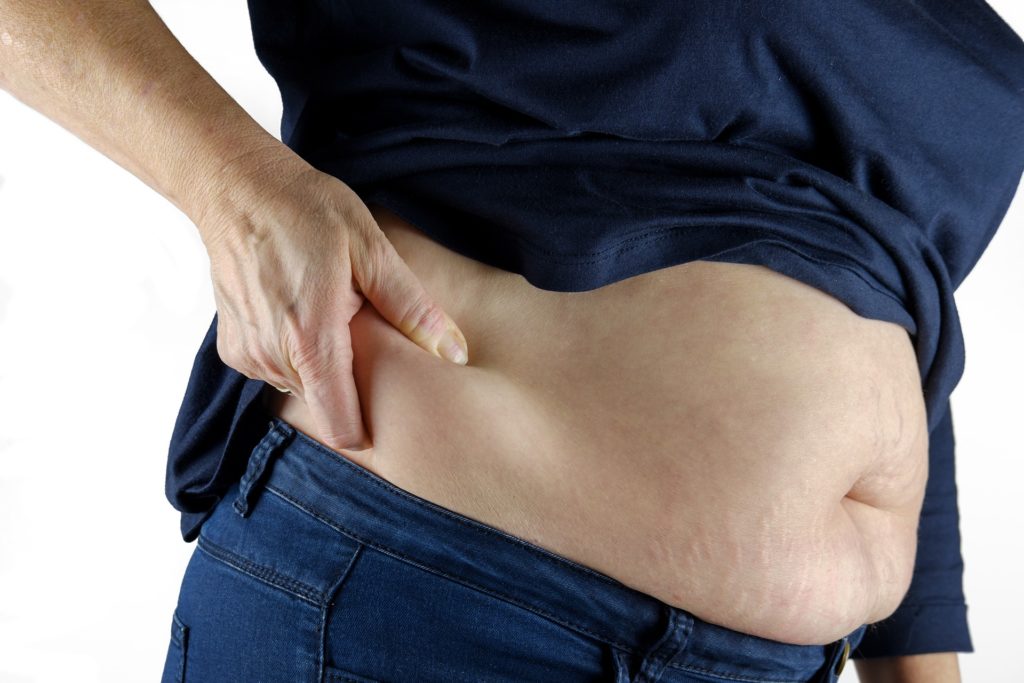
It is normal for fat to form inside the abdomen. However, excessive accumulation of visceral fat not only causes overweight, but also causes abnormalities in normal control of blood pressure and blood sugar, increasing the likelihood of developing various adult diseases such as diabetes and vascular diseases and symptoms of metabolic disorders. In fact, it is reported that excessive accumulation of visceral fat increases the risk of developing diabetes 2.1 times and hypertension twice. In many cases, the formation of visceral fat is largely due to lifestyle factors such as irregular eating habits, stress, and lack of exercise. If you block the causative factors and change your lifestyle, it will help suppress the accumulation of visceral fat as well as prevent various problems caused by excessive accumulation of visceral fat in advance. Now, let’s take a look at the various methods that will help you lose visceral fat one by one.
How to lose visceral fat
1. Controlling Refined Carbohydrate Intake
Carbohydrates, along with fats and proteins, are essential nutrients as an energy source for internal metabolism of the body. Refined carbohydrates, a type of carbohydrates, undergo a purification process and are carbohydrates composed of monosaccharides with one sugar molecule. It is rapidly decomposed and absorbed, and it has the advantage of exhibiting excellent effects as an energy source that can be used immediately by raising blood sugar quickly. However, excessive intake of refined carbohydrates produces more energy than is necessary and is stored in cells, resulting in increased visceral fat. In addition, the rapidly increased blood sugar affects the secretion of insulin and at the same time causes problems in blood pressure control, which is a direct cause of adult diseases such as diabetes and high blood pressure. Therefore, it is good to control the intake of sweets, breads, and processed foods containing refined carbohydrates. Increasing your intake of whole grains composed of complex carbohydrates, such as oats, brown rice, and whole wheat, is also a good way to replace refined carbohydrates.
2. Consistent protein intake
Protein, along with the aforementioned carbohydrates, is a key nutrient that plays an essential role in body metabolism. When you eat high-quality protein, it helps to build muscle and plays an important role in creating energy. These related actions increase the basal metabolic rate, which prevents the accumulation of fat as much as possible. In addition, studies have reported that it is involved in maintaining a feeling of fullness for as long as possible and suppressing appetite when eating a steady protein intake. Therefore, it is recommended to eat a balanced diet of meat, legumes, and milk that contain high-quality protein.
3. Adequate intake of dietary fiber
Eating vegetables and fruits rich in dietary fiber also plays an essential role in preventing the accumulation of visceral fat. Fiber-rich foods are said to help digestion and prevent fat accumulation in the body by activating metabolism. In addition, it prevents the rapid rise of blood sugar and helps control blood cholesterol levels, helping to prevent various metabolic diseases and cardiovascular diseases.
4. Control your intake of foods containing trans fats
In order to prevent the accumulation of visceral fat, the intake of foods high in trans fat should be reduced as much as possible. Trans fat is a type of unsaturated fatty acid, and refers to a fat solidified by adding hydrogen to the fat for the purpose of improving the texture of food and making it easier to store. Various foods such as breads, cakes, french fries, and processed chocolate made with shortening or margarine as raw materials fall into the food group high in trans fat, and excessive consumption of these foods acts as a direct factor in the accumulation of fat in the body. In addition, excessive intake should be avoided as it increases the level of LDL cholesterol, which causes an inflammatory response, and causes damage to the endothelial cells lining the arteries, which acts as a risk factor for various vascular diseases. Also, it is a good way to eat a well-balanced amount of blue-green fish, nuts, seeds, avocados, and olive oil, which contain fatty acids that are good for the body.
5. Regular exercise
In order to effectively lose visceral fat, it is essential to exercise regularly as well as diet. If you regularly perform various aerobic exercises such as walking, jogging, and swimming, it is said to be effective in suppressing fat accumulation in the body through burning body fat. In addition, since visceral fat surrounds the major organs around the abdomen, high-intensity interval training, which involves intense exercise in a short time, can help a lot to get rid of visceral fat. However, if you exercise excessively to lose too much fat in a short time, it can have the opposite effect. Therefore, it is recommended that you exercise according to your physical fitness range and increase the amount of exercise as your body gradually adapts.
6. Stress Management
Excessive stress disrupts mental and physical balance and stability, and at the same time disrupts the autonomic nervous system and control ability of body fat, which can cause fat accumulation. In particular, excessive stress stimulates the secretion of the hormone cortisol, which further increases the intake of fructose, which can accelerate the rate of fat accumulation. Moreover, chronic form of stress not only accumulates fat, but also causes abnormal symptoms of blood pressure and blood pressure, increasing the likelihood of developing various diseases. It can be said that it is for this reason that stress is also called the root of all diseases. Therefore, it is necessary to maintain the habit of adequately relieving and managing excessive mental stress through sufficient rest, sleep, and leisure activities.











